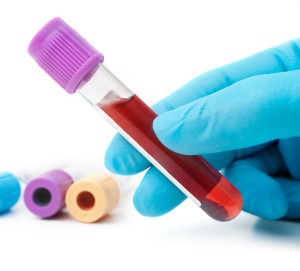
The issue of blood tests during DUI stops has been a hot topic recently in Minnesota, and a new ruling by the Appeals Court adds another layer to the puzzle. According to the Minnesota Court of Appeals, a search warrant that allows police to test for alcohol in the blood of a suspected drunk driver also provides them with the right to test the blood for drugs without additional clearance.
In a first-of-its kind ruling, the three-panel judge ruled that search warrants for any additional testing are not necessary once the original search warrant has been obtained and the blood sample has been taken. The decision reversed the original ruling by an Anoka County District Judge who threw out a blood test in the DUI case of Debra Lee Fawcett. Police obtained a warrant to search Fawcett’s blood for alcohol after a motor vehicle crash, and when it came back negative, they tested the blood for drugs without obtaining an additional search warrant. The subsequent test revealed Fawcett had marijuana and prescription drugs in her system, but the Anoka County judge ruled that police violated proper procedure in testing the blood a second time.
Anoka County Attorney Tony Palumbo said he took the case before the Appeals Court because he thought the police had reasonable suspicion to believe something was in Fawcett’s system at the time of the crash.
“We thought it was alcohol, but we tested it for drugs, too,” Palumbo said. “We obtained the blood legally and under this ruling it was reasonable to test it for drugs.”
Blood Test Ruling
During the investigation into the crash, in which Fawcett ran a red light and struck another vehicle, she admitted to police that she had “two or three beers” before the crash, but she denied being under the influence. With all signs pointing to intoxication, police only obtained a warrant to search her blood for alcohol, and when that came back negative, they looked for other substances that could have led to the crash.
Knowing that the original warrant was only looking for alcohol, Fawcett’s lawyer moved to dismiss “all evidence of the presence of drugs in the blood sample,” and the request was granted by the lower court.
During appeal, the state argued that after a blood draw has been legally taken, a person “has lost any legitimate expectation of privacy in any test results from that sample.”
The three-judge panel agreed.
“If the state lawfully obtains a blood sample for the purpose of chemical analysis, then a chemical analysis of the sample that does not offend standards of reasonableness is not a separate search requiring a warrant,” wrote retired Appeals Court Judge Bruce D. Willis.
Related source: Star-Tribune





